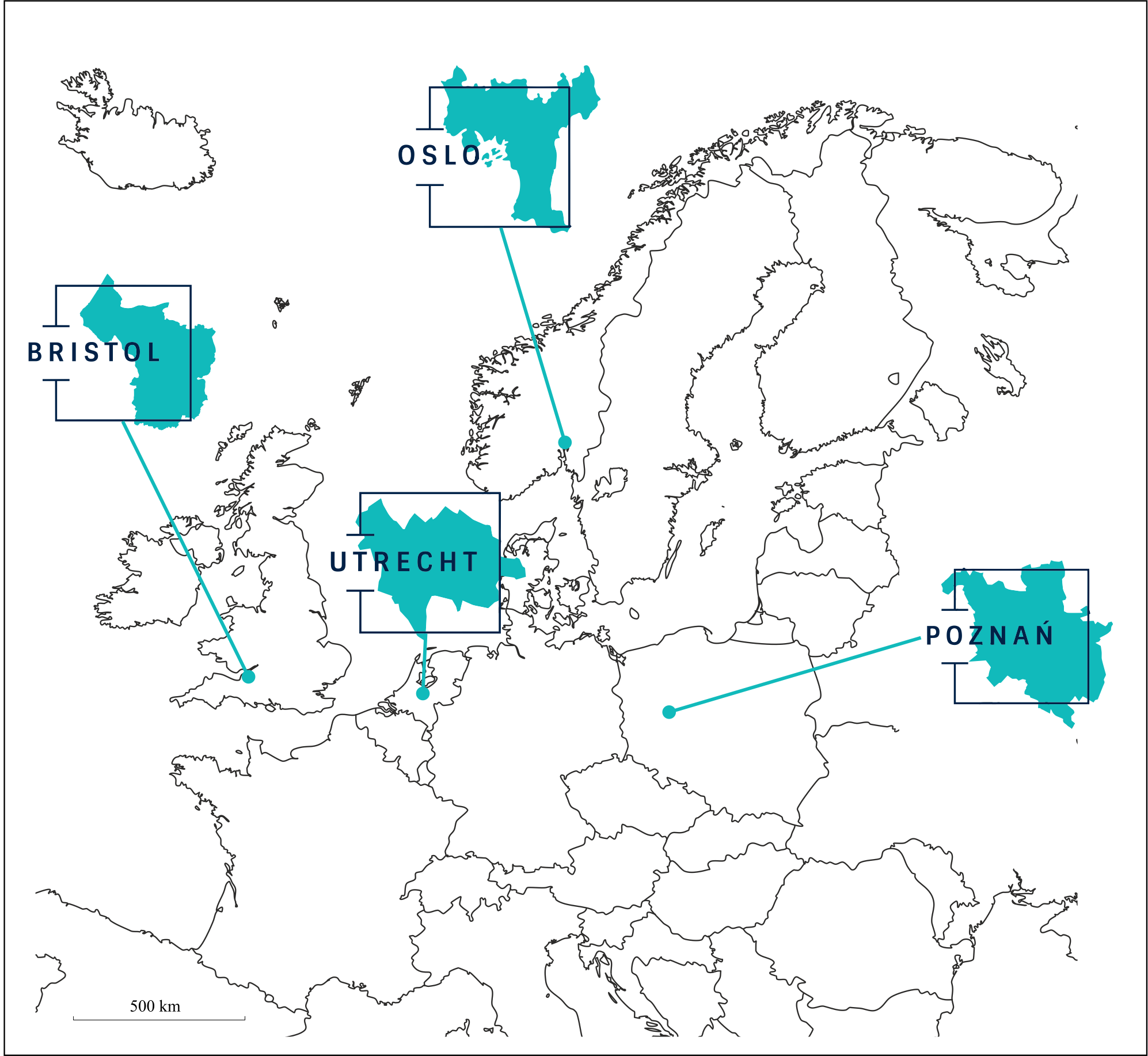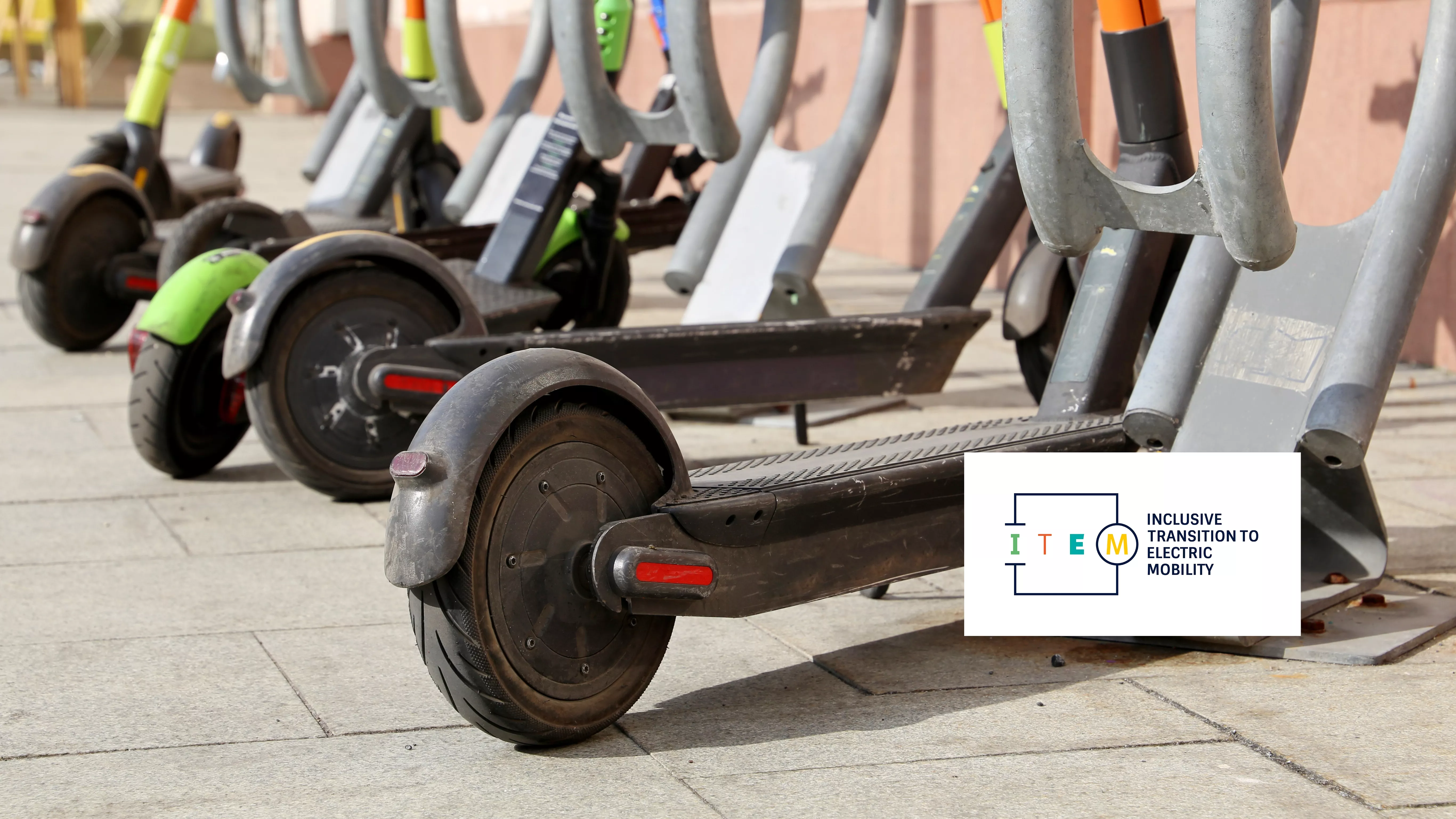Inclusive Transition to Electric Mobility (ITEM)
Overview
European cities' attempts to accelerate the transition to electric mobility (EM) are generating environmental benefits and enhancing economic viability. Unclear is how socially just these attempts and their outcomes are in terms of who benefits (distribution), whose needs are considered (recognition), and who gets to decide and how (procedure).
The research advances inclusive EM transitions on the urban scale through a dual perspective on households and urban policy. It examines inequalities in households' EM-related needs, capabilities, decision-making, accessibility and everyday mobility. It also analyses how and to what extent EM policies and governance take the aforementioned distribution, procedure, recognition, and epistemic dimensions of social justice into account. Finally, it has co-produced understandings of how urban and transport planning regarding sustainability and accessibility can be strengthened through inclusive EM transition processes.
The project has considered various forms of urban electric mobility, including shared and owned / leased electric cars, E-bikes and E-scooters, in the four medium-sized cities of Oslo, Utrecht, Bristol and Poznań. A mixed method and comparative case study approach has been applied to better understand the transition processes. A scenario-planning exercise aimed to plot how inclusive pathways to EM could be mapped in Oslo and Poznan, which currently have the highest and lowest rate of adoption of EM of the partners.
Over the course of ITEM, the research teams have analysed over fifty policy documents, conducted interviews with over fifty policymakers, mobility service providers, and other stakeholders, and over one hundred urban residents. Twelve workshops were held, three in each city, to facilitate the co-production of policies and plans for the transition to EM.
Ultimately, the project aims to bring about a shift in how EM policies and services at the urban scale are developed, implemented and delivered, so that urban EM transition pathways are not only accelerated but also become as inclusive as possible. Alongside the co-production workshops and presentations to numerous academic conferences over the course of the project, the project has delivered a number of published outputs, as detailed below.
Outputs
Expert Comment:
Policy Brief:
Evaluating urban electric mobility policy mixes in Bristol, Policy Brief, July 2024. [PDF: 9.4MB]
Academic articles:
Budnitz, H., Li, X., Morrissey, H., Schwanen, T., (2025) Understanding the uneven use of rental e-scooters and implications for equity: Evidence from England’s largest e-scooter trial. Case Studies on Transport Policy, p.101392.
Budnitz, H., Jaskólski, M., Knapskog, M., Lis-Plesińska, A., Schmidt, F., Szymanowski, R., van der Craats, J., Schwanen, T. (2025) Multi-level governance and modal thinking: tensions in electric mobility transitions in European cities. Transport Policy, 160, pp.63-72.
Israel, F., Ettema, D., & Van Lierop, D. (2024) Mechanisms with equity implications for the (non-) adoption of electric mobility in the early stage of the energy transition. Transport Reviews, 44(3), 659–683.
Lis-Plesińska, A., Jezierska, Z., Krzemiński, W., & Schmidt, F. (2024) Temporalities of e-scooter practices and their systemic effects: The case of the city of Poznań, Poland. Norsk Geografisk Tidsskrift. Norwegian Journal of Geography, 1–15.
Lis, A., & Szymanowski, R. (2022) Greening Polish transportation? Untangling the nexus between electric mobility and a carbon-based regime. Energy Research & Social Science, 83, 102336.
Lis-Plesińska, A., Szymanowski, R., & Jaskólski, M.W. (2024) Transition imaginaries: Expectations of the state project of an electric vehicle in Poland. Environmental Innovation and Societal Transitions, 53, 100912.
Schwanen, T. (2021) Achieving just transitions to low-carbon urban mobility. Nature Energy, 6(7), 685–687.
Book Chapter:
Lis-Plesińska, A., Ortar, N. Szymanowski, R., Jaskólski, M.W., Parteka, A., & Buisson, C. (2024) Improving Social Justice, Environmental Integrity, and Geopolitical Resilience in EU Electric Mobility Transition. In: Keseru, I., Basu, S., Ryghaug, M., & Skjølsvold, T.M. (eds) Strengthening European Mobility Policy (Chapter 4). Palgrave Macmillan, Cham.
Other publications:
Schwanen was quoted in: Topham, G. (2021) ‘Ambitious’ UK plans for electric vehicles welcomed – with reservations. The Guardian. 20 October 2021.
Budnitz, H. (2022) Overlooked? Social Justice Issues in Automotive Electrification. Institute for International Political Studies. 28 April 2022.
Budnitz, H. (2022) The importance of going electric equitably. Citti Magazine. 19 May 2022.
Budnitz was mentioned in: Hills, J. (2023) Day Two of the EV SUMMIT 2023. Electric Drives. 1 Nov 2023.
Lis-Plesińska, A., Szymanowski, R., Budnitz, H., Schwanen, T. (2023) Let's bring city centers back to residents. Rzeczpospolita. 27 January 2023.
For more information on this research project please contact Dr Hannah Budnitz
In brief


Lead partner at TOI: Lars Böcker
Lead partner at Utrecht: Dick Ettema
Lead partner at UAM: Aleksandra Lis- Plesińska



